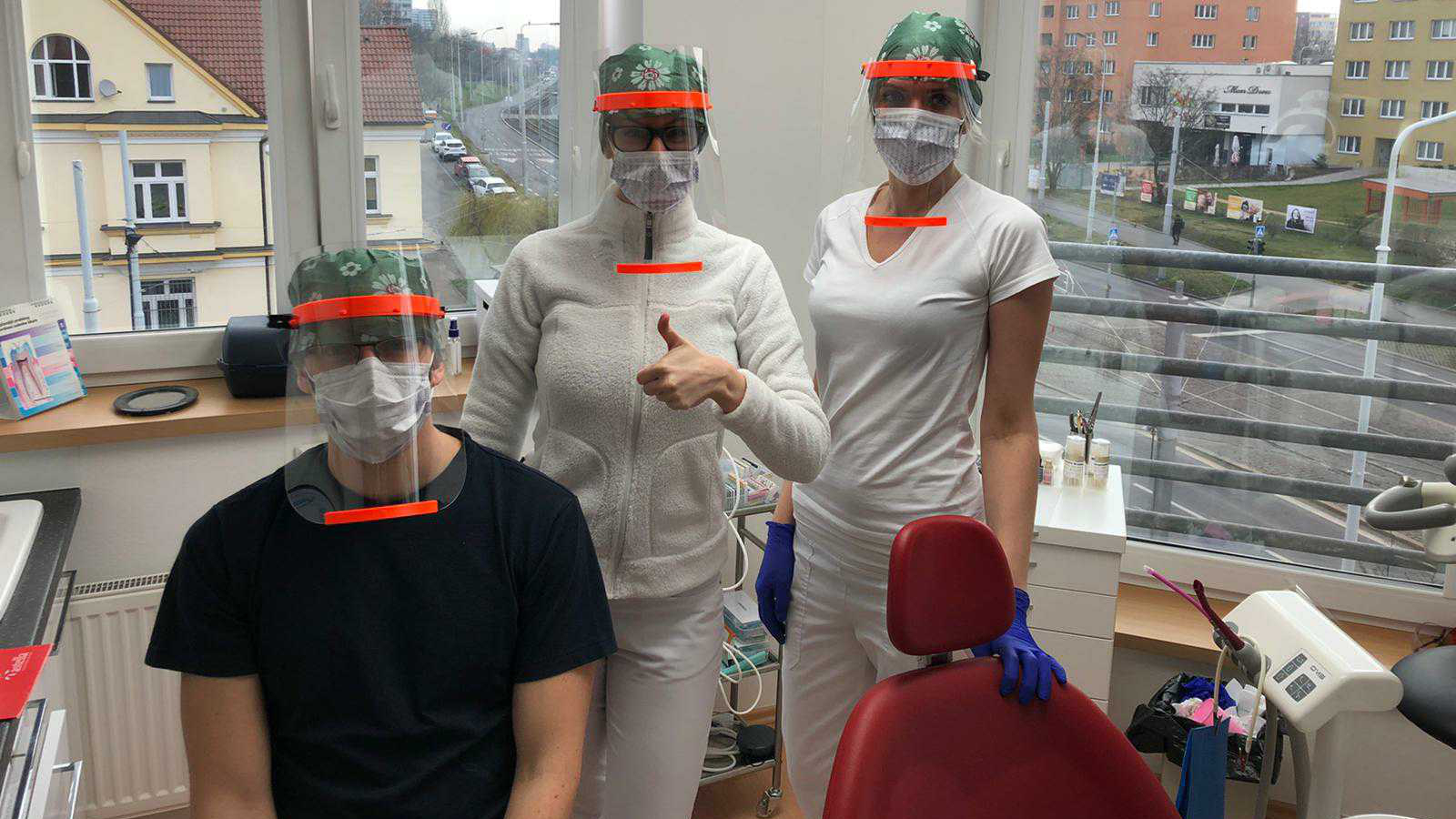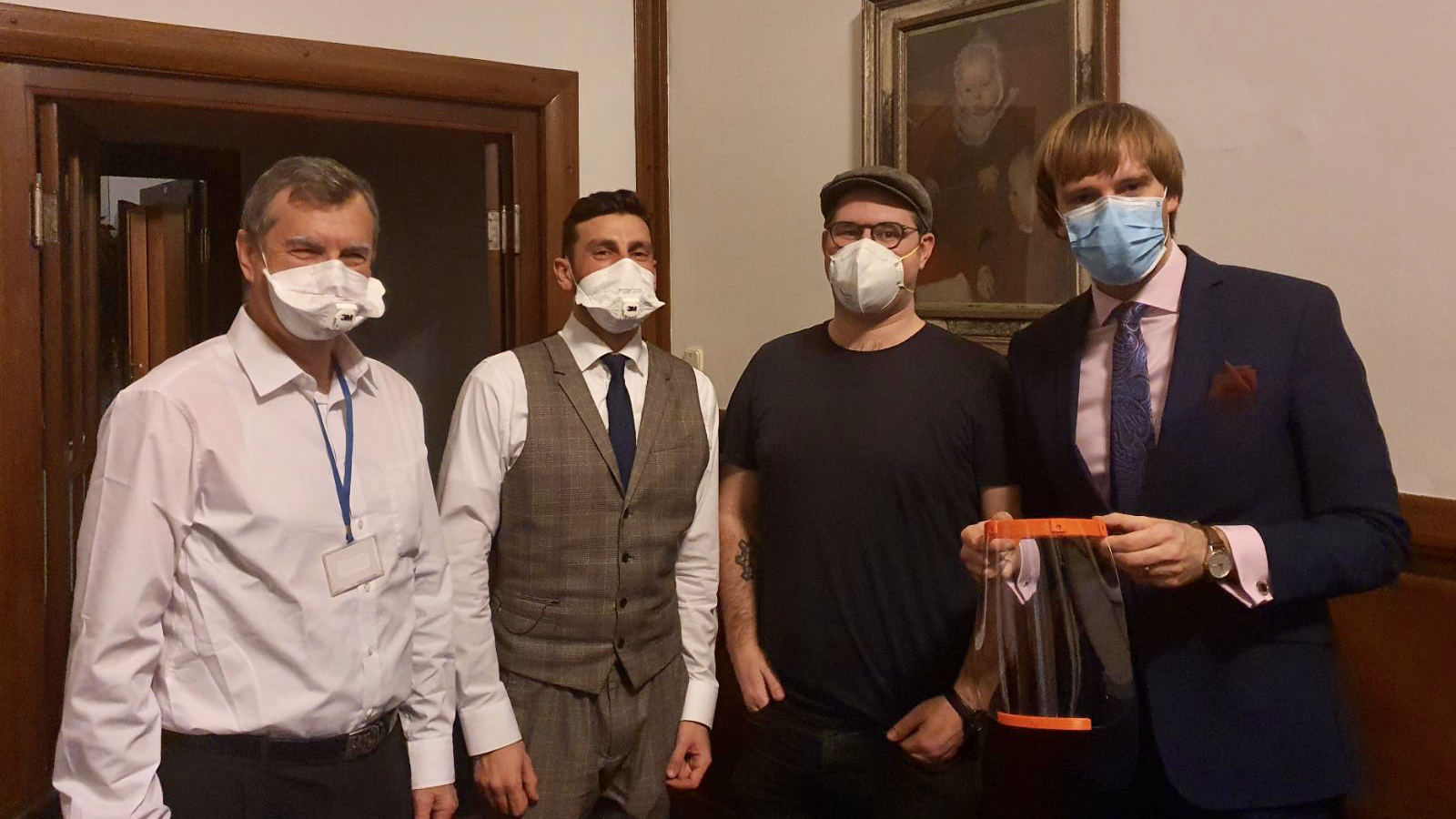DIY 3D-printed face shields could help against Covid-19
But Prusa warns that safety standards are of paramount importance

3D printer outfit Prusa is busy making medical shields to help in coping with the coronavirus outbreak, while encouraging the wider 3D printing community to get ready to join in with this effort – but warning that any printed products must be thoroughly tested to verify their safety. Mainly because a false sense of security is a very dangerous thing.
A lengthy blog post by CEO and founder Josef Prusa explained that the company has designed and begun production of face shields, which are much needed by medical professionals right now.
- 3D printing could also help fight this aggressive cancer
- Best Electronic Medical Record (EMR) software
- These are the best 3D printers of 2020
The shields help protect those treating coronavirus sufferers, guarding the eyes and face against potential infection from the coughs and sneezes of patients.
The chief executive observed: “We were notified on Facebook that doctors are in great need of face shields and that there is already a great face shield design available online.
“We took it as a starting point and decided that we would adjust it for easier and faster 3D printing – e.g. there shouldn’t be any supports required and we should fit as many of them onto a single print sheet as possible. So we started working on it immediately.”
After three days spent experimenting with dozens of prototypes, Prusa began mass production of a finished medical shield design, and intends to donate 10,000 to the Czech Ministry of Health.
Each protective mask costs less than $1 in terms of the bill of materials, and Prusa reckons it can produce 800 units per day via its 3D printing farm. That’s only using a fifth of the farm’s 500+ 3D printers, mind you, and when production bottlenecks around laser cutter capacity are removed, Prusa should be able to churn out more like 4,000 masks every day (using all its printers).
Sign up to the TechRadar Pro newsletter to get all the top news, opinion, features and guidance your business needs to succeed!
These face shields are still prototypes which need tweaking and verifying with professionals, Prusa notes, but it’s obviously a fantastic step forward for the 3D printing community – and Prusa wishes to design protective goggles as the next step.
When the current design is completely finalized, Prusa observes that the medical shields can be printed by the wider 3D printer community.
Prusa said: “It’s a great time to give your printer a tuneup and to stock up on materials so you are ready to start printing as soon as we release the designs. I think most makerspaces should have the tools needed: a 3D printer, a laser cutter, and scissors – that’s all you need!”

Safety first
Efforts like this will obviously be a huge help in terms of treating coronavirus, but Prusa also had a warning for the 3D printing community, concerning the production of respirators – something which has been talked about widely already – and safety issues around that.
Prusa said that the efforts and ambition of those wishing to make such respirators was highly commendable, but warned that this route “might not be the best idea at this time”.
Why not? Prusa observes: “None of the designs available right now have been tested to ensure they provide the protections needed, at least none of the ones I am aware of. To help with this, we have collected as many designs as we could find, and are working with experts to see if we can verify which ones really work.”
There are potential problems around the quality of the filter itself, and the effectiveness of the sealing, as well as the porosity of the 3D printed parts which are a further concern.
Prusa warned: “If you absolutely insist on printing a mask now, treat it like it is a basic surgical mask and not as a true respirator with all the protections they provide. A false sense of security can be very dangerous. I understand you’re trying to help, but PLEASE spread this info into your 3D printing groups.”
The blog post also provides further advice on ensuring 3D printing environments are up to the appropriate standards for sterile and safe production of equipment such as medical shields, so if you’re wanting to prepare to get involved, give it a good read over.
You may have also seen that gaming hardware manufacturer Razer is helping in the fight against coronavirus by repurposing some of its manufacturing lines to make surgical masks – up to a million of them – instead.
Darren is a freelancer writing news and features for TechRadar (and occasionally T3) across a broad range of computing topics including CPUs, GPUs, various other hardware, VPNs, antivirus and more. He has written about tech for the best part of three decades, and writes books in his spare time (his debut novel - 'I Know What You Did Last Supper' - was published by Hachette UK in 2013).